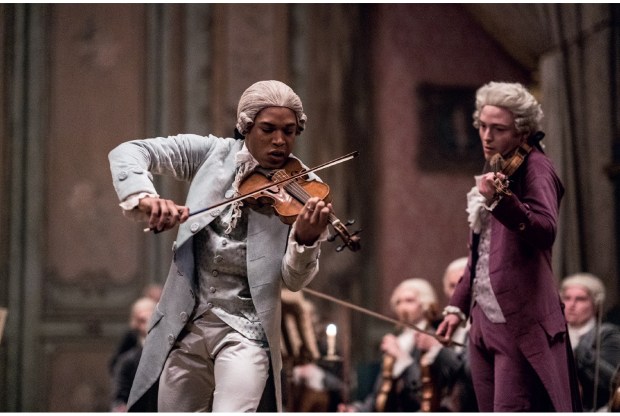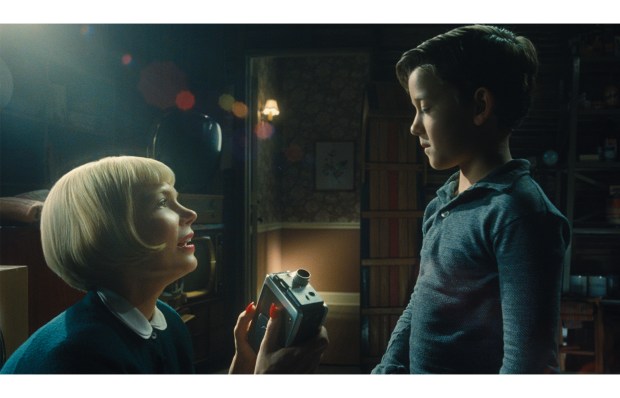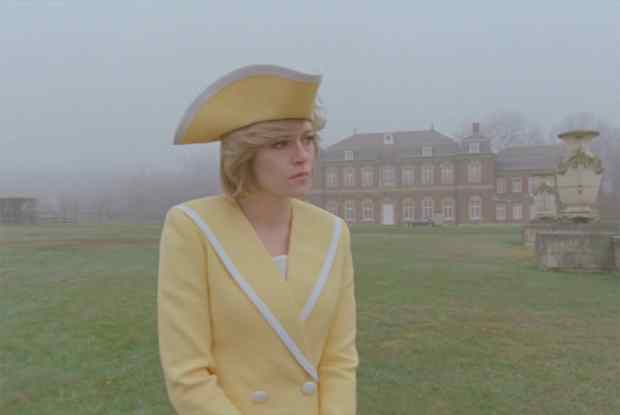Frances Ha will make many spit ‘Frances…Bah!’ but I won’t be among them. Yes, it is rather kooky, and highly self-conscious, with its New Wave references and its Woody Allen influences (it’s a serious, black-and-white, Manhattan comedy), but it’s also sweet, endearing, touching, and features proper women you can actually believe in, and who aren’t just drippily searching for love, which is something of a novelty. Plus, it comes in at under 90 minutes, which is totally great. I was over the moon about that.
You know, when I am appointed Professor of Film Studies somewhere, as is still only a matter of time, the first thing I will tell my students, once we’ve dealt with the New Waveyness of the New Wave — Goddard: he was a one! — is not to go on and on and on. ‘Say what you have to say then get the hell out,’ I will tell them. Then I may well add: ‘What, you think we don’t have homes to go to?’ Sometimes, I don’t even think it crosses their minds!
This is a film by Noah Baumbach (The Squid and the Whale, Greenberg, among others), who wrote it, concisely, along with his girlfriend, the actress Greta Gerwig, who stars, and is a lovely actress; gorgeous, but also fresh and real and generous, somehow. Hollywood actresses, as a rule, look as if they’ll snap and shatter into tiny sharp shards should they fall over, say, but Ms Gerwig looks as if she’d bounce right back up. Anyway, she is Frances, a 27-year-old who has been happily floating through life but has reached that point where she senses she needs to get her act together; needs something solid to hang on to: a job, her own apartment, but not a boyfriend, particularly, thank God. Frances is a little bit of a mess, and she knows it, just as others know it. ‘You look older, but less mature,’ someone comments when she tells them her age.
She is broke. She’s an apprentice at a dance company and hopes to join the corps, although this does not seem especially plausible, as she’s probably already too old, and there is something a little heffalumpish about her. She shares an apartment with her best friend Sophie (Mickey Sumner, daughter of Sting and Trudie Styler; she is terrific), but then Sophie dumps her for a rich boyfriend, and although the two have quite a womance going — ‘We are the same person, but with different hair,’ they tell everybody — we are never quite sure if Sophie is true or not.
A string of not very eventful events happen to Frances, in that New Wave way — Truffaut: also a one! — as she visits her parents in California (played by her own parents), rooms with friends in Chinatown, gets cast off by the dance company, endures a financially ruinous and lonely weekend in Paris, and suffers the humiliation of returning to her college, Vassar, to waitress for the summer.
So we’re propelled along not by what happens, but by Frances herself, who is kind-hearted, eager to please, lovably befuddled and funny. ‘I feel like a bad mother in 1987,’ she says, on discovering she can smoke indoors in someone’s home. She just sort of charms us along. And there are some killer scenes, too, including the one where she attends a ‘grown-up’ dinner party, drinks too much, and lets loose with an inappropriate stream of consciousness.
Meanwhile, the black and white somehow adds majesty to the ordinary and intimate, in that Woody Allen way, while the streets and places are the real streets and places, in that New Wave way. (Rohmer! Don’t you want to eat him!) But mostly I love this film because it has the courage to be a character study more than a story, and the wit to make it work, and has a female lead whose happiness does not depend on finding a man. Frances knows she can only solve the problem of herself — that is, her ennui — from within herself. It is not Frances…Bah!
Got something to add? Join the discussion and comment below.
Get 10 issues for just $10
Subscribe to The Spectator Australia today for the next 10 magazine issues, plus full online access, for just $10.
You might disagree with half of it, but you’ll enjoy reading all of it. Try your first month for free, then just $2 a week for the remainder of your first year.













Comments
Don't miss out
Join the conversation with other Spectator Australia readers. Subscribe to leave a comment.
SUBSCRIBEAlready a subscriber? Log in